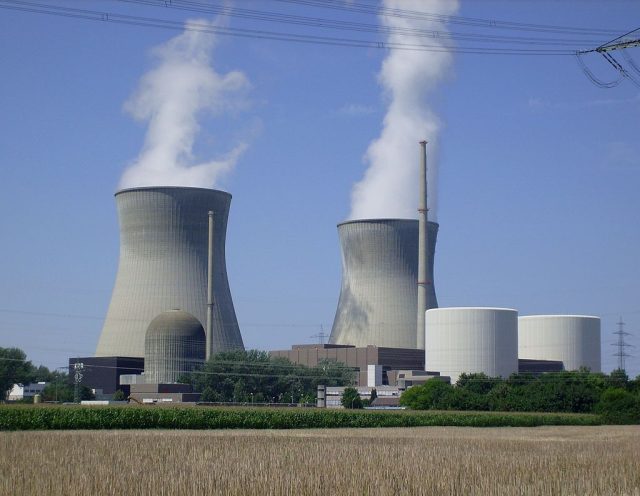On the last day of 2021, as final preparations were being made for the New Year’s Eve firework display in central Berlin, outside the German capital another era was drawing to a close. It was the beginning of the end of Germany's decades-long dalliance with nuclear power.
On December 31, Germany shut down three of its six remaining nuclear plants. By the end of 2022, the other three will be shut as well. Two decades after an agreement to eliminate nuclear power became law, the country’s phaseout has been dramatic. In 2002, Germany relied on nuclear power for nearly 30 percent of its electricity. Within a year, that percentage will be zero.
Germany isn’t the only European nation reevaluating its relationship with nuclear energy. Its neighbor Belgium currently sources nearly 40 percent of its electricity from nuclear power but has committed to closing down its seven remaining reactors by 2025. To the south, Switzerland has already shut down one of its five remaining nuclear power plants, the first stage in what will eventually be a total phaseout.
Switzerland’s phaseout was decided in a 2017 referendum, when the majority of the public endorsed an energy strategy that subsidized renewables and banned new nuclear power plants. The Swiss referendum was driven by environmental concerns raised in the wake of the 2011 Fukushima disaster, when three reactors melted after a tsunami overwhelmed the power plant. That disaster, and concerns about the disposal of nuclear waste, also hastened Germany’s nuclear shutdown. Shortly afterward, then-chancellor Angela Merkel—who had previously said she didn’t agree with shutting down nuclear plants early—announced that Germany would no longer extend the operating life of existing plants.
Critics of Europe’s nuclear shutdowns say losing reliable sources of low-carbon energy is the last thing we should be doing when we need to reduce emissions. They argue nuclear is one of the safest and lowest-carbon forms of electricity generation there is. In France, nearly 70 percent of electricity is generated by nuclear power plants, which is why it has some of the lowest-carbon electricity anywhere in Europe. Nuclear skeptics, on the other hand, say nuclear’s low-carbon credentials are undercut by its high costs and the long timelines involved in building new plants, as well as long-standing public concerns about safety and radioactive waste.
Looming over Europe’s nuclear slowdown is the pressing need for the continent to completely decarbonize its electricity supply. The EU has set itself the target of having net-zero greenhouse gas emissions by the year 2050, and the plan relies on delivering a sizable chunk of those reductions by 2030. Critics of Germany’s nuclear plan have pointed out the contradiction of abandoning nuclear energy while the country’s coal-fired power plants continue to pump vast amounts of carbon dioxide and deadly particulate into the atmosphere. But if there’s any lesson we can draw from Europe’s nuclear dilemma, it’s that the pathway to clean electricity is littered with obstacles: political, economical, and ideological.



3175x175(CURRENT).thumb.jpg.b05acc060982b36f5891ba728e6d953c.jpg)

Recommended Comments
Join the conversation
You can post now and register later. If you have an account, sign in now to post with your account.
Note: Your post will require moderator approval before it will be visible.